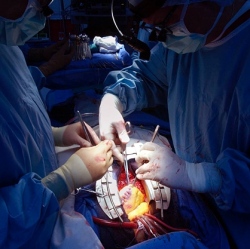
Every second or so, Carlos would feel a small “bump” hitting his tummy. It was the beating of his “second heart”. The small mechanical pump was meant to relieve the burden of his failing cardiac muscles, but Carlos disliked the sensation. The beat of the machine seemed to replace his pulse, a sensation that warped his body image:
As the device throbbed above his navel, Carlos had the eerie feeling that his chest had dropped into the abdomen. It was a strange, unsettling feeling. But when neuroscientist Agustin Ibanez met Carlos, he suspected even odder effects were to come. By changing the man’s heart, Ibanez thought, the doctors might have also changed their patient’s mind: Carlos would now think, feel and act differently as a result of the implant.
How come? We often talk about “following the heart”, but it is only recently that scientists have begun to show that there is literal truth in the cliche; the heaving lump of muscle contributes to our emotions and the mysterious feelings of “intuition” in a very real way. Everything from your empathy for another person’s pain to the hunch that your spouse is having an affair may originate from subtle signals in your heart and the rest of your body. And the man who feels two hearts offered Ibanez, who is based at Favaloro University in Buenos Aires, a unique opportunity to test those ideas.
Ibanez’s work chimes with millennia of speculation about the heart’s role in cognition, which was sometimes thought to supersede the brain’s. Touching the cool, moist grey matter of the cortex, for instance, Aristotle assumed that the brain’s main function was to chill the passions erupting from the heart, which he considered the seat of the soul. For similar reasons, embalmers in ancient Egyptians made sure to leave the heart in the chest, but happily removed the mere “cranial stuffing” from the head.
